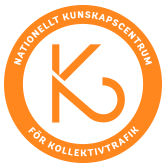Sustainable Mobility and Land Use Solutions for Green and Livable Cities

This course examines how cities can become more green and livable places by reducing their dependence on the car. It is a globally-oriented course which will take participants on a broad tour of good and bad examples of urban environments around the world. It will emphasise many important positive changes that are occurring in urban environments worldwide. Overall, the course will show how cities in many different contexts are moving away from car-based planning and how it is possible to envision an end to automobile dependence. The course participants will have the opportunity to reflect on how they can learn from what is happening around the world and bring good ideas home.
The following sessions will be included:
-
A Transport and Urban Form History of Cities: Walking, Public Transport and Automobile Cities in a Global Perspective
-
The Environmental, Social and Economic Problems of Automobile Dependence
-
Planning for Reduced Automobile Use: International Evidence of How Urban Development is Moving Beyond Auto Dependence
-
Best Practice in Public Transport Systems: A Global Perspective on the “Hardware” and “Software” of Public Transport Systems
-
Best Practice for Non-Motorised Modes: A Global Comparative Perspective on the Role of Walking and Cycling and How to Promote It
-
Traditional Transport Planning: Why It No Longer Works
-
Transit Oriented Development (TOD) and the Importance of Urban Rail: A Global Perspective
-
Making Cities Green Cities
-
Case Studies in Greening Cities for Reduced Car Dependence: Freiburg, Germany
-
Case Studies in Greening Cities for Reduced Car Dependence: Portland, Oregon
Presenter
The presenter of the course is Emeritus Professor Jeffrey Kenworthy, an internationally well-known researcher from Curtin University in Perth, Australia and Guest Professor at Frankfurt University of Applied Sciences connected to K2, who has 40 years of experience in sustainable transportation, public transport and urban planning. He has published a large number of scientific articles and books. His three latest co-authored books are:
- The End of Automobile Dependence: How Cities are Moving Beyond Car-Based Planning (2015)
- An Introduction to Sustainable Transportation: Policy, Planning and Implementation (2nd Edition) (2018)
- Big Moves: Global Agendas, Local Aspirations and Urban Mobility in Canada (2020).
Approach
The course will include a mix of lectures, movies and discussions. Participants throughout the course will be given the opportunity, through five workshop and/or discussion sessions, to engage with course topics in relation to the participants’ own specific urban regions.
Target group
People working in the areas of urban planning, transport planning, public transport, walking and cycling, either within government, the private sector or through community organisations.
Course fee
The course fee is 14 500 SEK / approx 1400 EUR excl. VAT. Coffee breaks, lunches, bike ride as well as one book are included in the course fee. The registration cannot be cancelled, but transferred to another person within an organisation if necessary. The organisers reserve the right to cancel the course, should too few registrations be received. In the event of the course being cancelled, a full refund will be provided, otherwise the fee is non-refundable.
